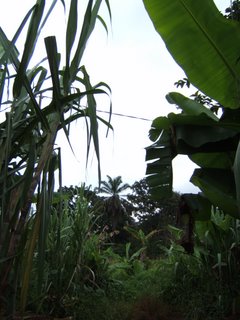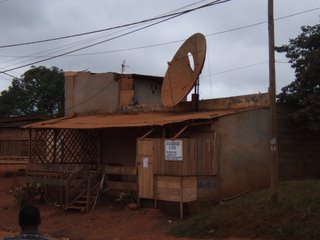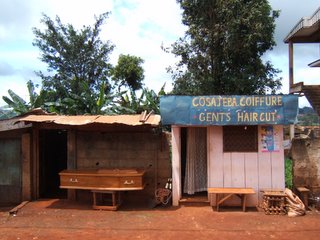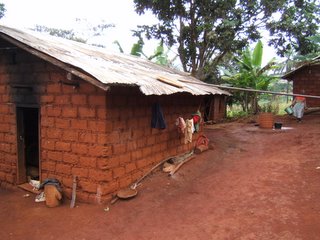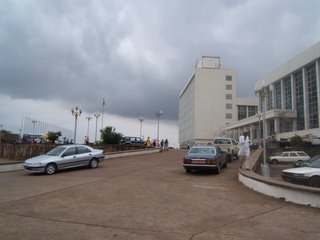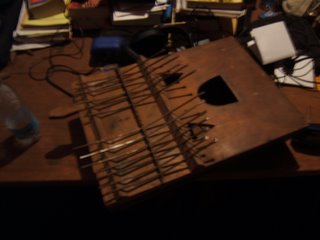
After struggling to be patient for some weeks, I've managed to make contact with a musician who's willing to work with me, and with whom I want to work. He's essentially the musical director of what is known in French around here as a "reunion." Reunions are very common across Equatorial Africa, and serve several functions; for one, they are savings and loan clubs. Members show up each week with a sum of money (how it's determined, I don't know) and give it to the treasurer. Then, everyone collectively decides how it should be spent. Very often, one member gets it to help pay for a funeral.
Another function is to provide an opportunity to maintain and enjoy "tradition." The debates are carried-out in Medumba (not French), and the music is "traditional" (not guitars and keyboards). However, I don't think all reunions have music like this one does. The funding of funerals is also a big deal, because funerals are another locus of "the traditional," and the people who play music with the reunion also take gigs playing funerals.
I've only been twice to this reunion, so generalizations are tentative, but the ensemble consists of 3 or 4 kalimbas, a pair or 2 of maracas made from tin cans, two think bamboo poles lashed together and played by 1 or 2 people with wooden sticks, and a sometimes a rough wooden pole scraped with a ring. Musicking kicks off the meeting (usually, I think). Almost everyone else dances, and there might be call and response singing. The money-talk is supposed to come after, but the second time I went, they had either done it early, or there was no controversy because everyone left once the music was finished. The first week, I stuck around for a couple of hours of debate (I had an interpreter), and left before it was finished.
The musical director is not there in any other capacity and is not interested in the money stuff, although all the other players are full members. I'll have to explain shortly that, as an anthropologist, I'm interested in the money as social context to the music. Besides, oratory and debate are great for linguistic anthropologists. The members of the reunion have been extremely welcoming, and I don't anticipate a problem with this. Let's hope I make fast progress with my language acquisition, as my Medumba is rudimentary right now.
I'm also impatient - and sometimes discouraged - about languages because lack of Medumba skill has so far prevented me from asking the right questions about music and poetry. While Medumba of course has concepts, categories, and words similar to "poetry," "song," "rhetoric," "music," "dance," and "sound" in English, they aren't organized the same way. This is precisely the sort of phenomenon I came here to look at. So, I'll keep working, but have to wait a while before getting to the heart of the matter.
At this stage, then, it looks like my project will be about sound, money, the concept of "tradition," rhetoric, and possibly multilingualism. Of course, it could change again at any time.
